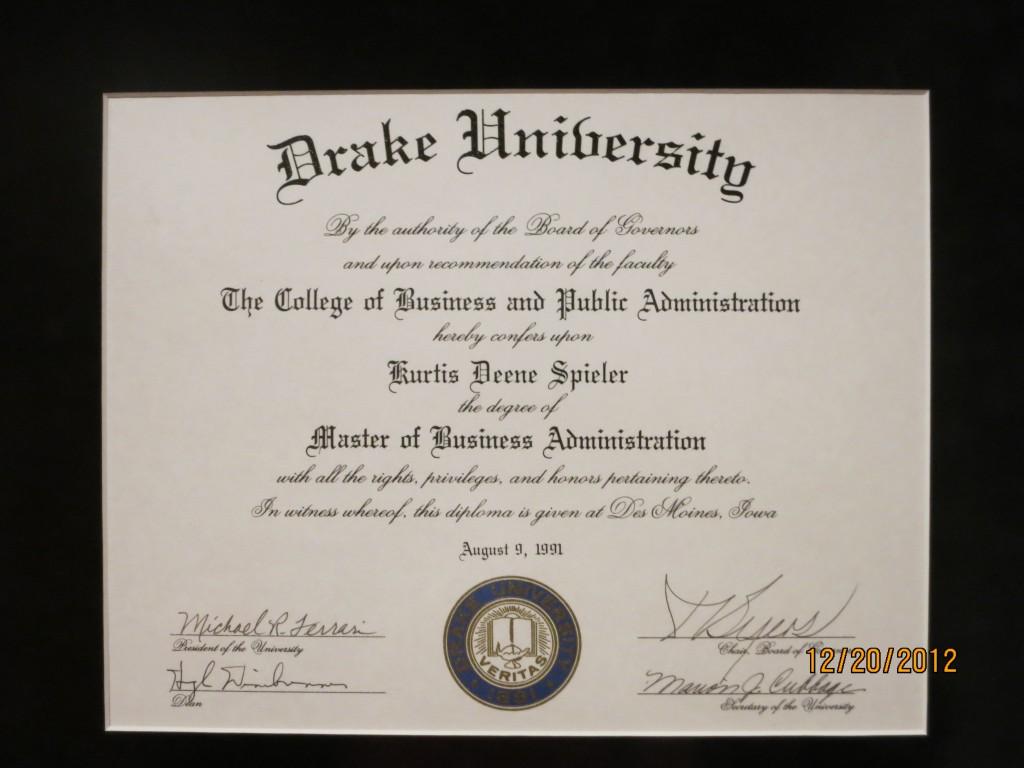Sweat beat upon his forehead and stained the collar of his orange jumpsuit. The tips of his tattoo crawl upon his skin, just beyond the frayed hem of the prison uniform; like fingers grasping at his neck. Visibly pale, skinny, and with sunken eyes he peered through the glass. Hesitantly he placed the phone to his ear. Head down and ashamed, our conversation began.
Such a meeting seems almost artificial, for these are not the average encounters known to a 20-year-old. Yet with a past such as Julian’s, things could be worse. In fact, he should be dead.
According to a 2011 study by Foster Care Alumni of America, 60 percent of children who emancipated (or “aged out”) of the foster care system were either in jail, homeless, or dead, by the age of 19.
Born July 7, 1992, Julian White* has become an accurate representation of these statistics. White is now in the Larimer County Detention Center Work Release program. “This is my third time in jail,” he said. “Hopefully it’s my last time.”
White is eager to be out of the hands of the government and take responsibility for his own life. He has been living through some sort of government institution since his entrance into the foster care system at 12. “My family situation down in Florida didn’t really work out,” he said.
After leaving Florida, White and his older brother Andrew* moved to Michigan in hopes of starting fresh. However, White lost hope of this fresh start on the eve of Easter 2002, when Andrew committed suicide. Ten-year-old White was the first to find him, and was questioned for the murder of his 18-year-old brother.
Two years later, White was found innocent of all questions relating to his brother’s death. The Department of Human Services (DHS), placed White in the care of his aunt, in Estes Park, Colo.
White’s stay there was relatively short. “She didn’t want me. She didn’t ask for me. She just got me because we’re related,” he said. White was placed back into the hands of DHS, where he officially became a part of the foster care system.
Upon entering the system, White lived in seven different foster homes and six different treatment centers, also known as group homes.
According to previous Larimer County Supervisor Phillis Stoner, these homes are mandates of the state government, provided such that, “…Foster children without a foster home can stay temporarily until a more permanent placement is found.”
Throughout his childhood in foster care, White was never able to find that permanent placement. Instead, he continued his journey in and out of foster homes and group homes alike.
While in the group homes, White encountered many other children with pasts just as tumultuous as his own. “Every foster kid has been through something,” he said. This trend, according to White, often leads to an environment that is far from healthy.
“It’s just natural that when you have a bunch of angry little kids living together, they’re going to fight,” he said, “and they’re going to hurt each other, and they’re going to lay their hands on each other.”
According to Stoner, the system’s “fix” to this problem of “angry little kids” is medication.
She recalled the case of a 3-year-old girl who suffered from night terrors and personality disorders that lead her to have outbursts atypical in children of that age. “She would scream and scream until she was hoarse,” Stoner said. “She would wake up at night screaming and crying because of her night terrors.”
Doctors did not try to remedy the situation. “They just hand out pills,” Stoner said. As she recalls, minimal efforts were made in terms of therapeutic techniques in order to suppress the nightmares; a practice that Pediatric Physician Andrea Mead strongly disagrees with.
Mead claims that such symptoms can often be the result of a “toxic situation.” These toxic situations can include abuse at home or at school, or a traumatic experience which can lead to cause this inability to sleep calmly.
Mead knows of many treatment options aimed at minimizing the side effects of emotional disturbance. Such therapeutic techniques include play therapy, imagery therapy, or bio feedback—all of which have been proven to have the same positive effects of heavy medication, without the dangerous side effects.
“There are other things you can do with a child that young,” Mead said. “I mean, medicating a child under the age of four without having tried anything else… that just shouldn’t happen.”
Disturbing as it may be, this is no strange case to the foster children which Stoner was referring to.
A study by the National Institute of Mental Health in 2008, stated that the results of medicating small children can result in heavy sedation, bladder problems, drowsiness, slurred speech and drooling.
However, handing out medication with minimal post-observation to children requires significantly less effort than monitoring the process of extensive psychotherapy. It is also cheaper. Both of which are factors Stoner views to be contributors of the underlying problems within the foster care system.
Stoner claims that the system focuses on mandates rather than services. The problem with mandates is that they foster no emotional attachment with the kids. Yet the system choses to focuses primarily on such institutions due to the fact they are cheaper, and they require less effort.
Services, on the other hand, often entail much more complex processes, thus requiring more money, and much more time.
“The state cuts our services because they’re expensive,” Stoner said. “But those services are what the kids need.”
The services to which Stoner is referring include programs such as the Casey Foundation, which aims at creating healthy and proficient homes. The foundation works to provide homes for the parents to live in while they welcome foster children into their lives. Though proven to be effective, the program has been relatively ignored by the state due to its expense.
Rather, the money is funneled into mandates such as the Remmington House in Fort Collins, Colo.
White spent much of his childhood in these group homes, and claims that they were never effective for him. “The staffers were mean, and they didn’t treat us like people. They just did everything by the book,” he said.
White also recalled such corruptions as staff-resident relationships, often made illegal by the vast age differences.
Stoner, however, has a different view on the staff of such homes. “They have good intentions,” she said. “And they work hard for these kids.”
Such contradictions in testimonies could cloud the financial conflicts among foster care supervisors and state officials.
Current foster parent Jim Zimmerman has found a possible cure to the conflicting viewpoints of foster children and state officials.
Walking into the almost vacant McDonalds, Zimmerman was easy to spot. Tufts of soft white hair showed lightly beyond the seams of his dusty ball cap. His cowboy boots clicked heavily upon the tile. Shaking his hand, the rough feel of calluses met my palms. His smile exuded nothing but love for the recipient.
For 16 years now, Zimmerman has donated his life to developing what the state sees as “severe cases” into respectable young gentlemen.
Having six biological children and 28 foster children, Zimmerman sees himself as the proud father of 34. Zimmerman claims that he’s different. What he does is different, and the way he looks at foster children is different.
After his parents passed within a week of one another in the year 2009, Zimmerman acquired a large sum of money. He developed a vision of expansion. He wanted to help foster children, and he was willing to give up anything to do it.
He and his wife Vicki expanded on their ranch in Wellington, Colo., and acted upon their aspirations of becoming an influential force for young boys in need.
“I told the state to give me the toughest cases… I knew I could do it, and now they know I can too.” As of late, probation officers and drug court justices have turned to Zimmerman while deciphering the best plan of action for many of his foster sons.
“I know my boys,” he said. “And I know what’s good for them. I know what they need and they know to listen to me.”
An average day of one of Zimmerman’s foster sons includes hard work and commitment; the same two qualities Zimmerman whole-heartedly gives to all who pass through his home.
“I have the boys working out in the fields and mucking out the pens.” Pens of stock animals that is, which have become a rather therapeutic element to life on the Zimmerman ranch.
Zimmerman teaches his boys discipline, which he expects to be applied at home and at school. “School just shows what you’re going to do in the real world,” he said. Therefore, failure to succeed in school can often be the prompter of extra chores at the ranch, or a stern lecture.
These stern lectures depict one of Zimmerman’s multiple sides. Due to fostering four boys at a time, all the time, Zimmerman sees himself to be different with each of them according to what they need.
“At home, there’s about two to three different ‘Jims.’ There’s the very direct Jim that you don’t ‘wanna cross, and there’s that Jim who’s fun.”
That “Fun Jim” seems to be the one that breaks down walls in these boys; walls that other parents have deemed unbreakable. Zimmerman recalled the case of a boy named Jonathan. Jonathan was convicted of sexual assault and various other misdemeanors. He was acting out in school, and got in trouble with school officials multiple times. Zimmerman claims that at the beginning of his stay at the ranch, Jonathan hated him.
“He spat in my face, he called me names, he would get in my face and yell at me, and my wife, too,” he said. “But after three weeks here, he started to listen; he started to learn.”
One day Jonathan approached Zimmerman. “I had been waiting for this day since he got to my house,” Zimmerman said. Jonathan wanted to talk about himself; he wanted Jim to know why he was the way he was.
He told Zimmerman that when he was much younger, before he had entered the foster care system, his mother would have all kinds of different men coming through their house. Jonathan saw those men as the “Boogie Man.” He saw that they pushed people away. Jonathan said, “I’ve tried to become the boogie man so that I can push people away.”
This seems to be the general mentality of many of the boys who pass through the door of Zimmerman’s home. One of the most severe possessors of this trait was Julian White.
Zimmerman is White’s latest foster dad. “Julian was a tough kid,” Zimmerman said. “He didn’t want my help and he made sure I knew it.”
While staying at the ranch, White would run away for days at a time. He returned each time, defying previous behavioral patterns.
Zimmerman claims that White was in a very bad place. “He didn’t want to live when I got him,” Zimmerman said. However, after White realized that Zimmerman was not giving up on him, he started to trust him, little by little.
Zimmerman remembers one of the most influential moments of his foster-parenting career. “Julian called me late one night. I could tell something was wrong.”
As it turned out, White was being held at gun point over a drug debt. Rather than calling the cops or a friend in the drug business that could appease the situation, White called Zimmerman, who didn’t hesitate to help. “I threw my gun in the truck and sped over.”
Zimmerman arrived at the house, and White met him outside. At this time, Zimmerman convinced White to give him the name of one of the individuals who was threatening to kill him.
White returned to the house and warned the dealers that someone outside knew at least one of their names. If he died that night, the cops would know who did it.
“Julian ran out to the truck and the house cleared out… everybody left,” Zimmerman said.
Zimmerman claims that his commitment was what led him to hop into his truck without hesitation. “I’m 100 percent committed. When you walk into the doors of my home, you become a part of my family,” he said. “And that’s what these kids need.”
Zimmerman sees his home to be a different foster home than most for this very reason. “My wife and I, this is what we do. We become their family. I don’t just kick ‘em out as soon as they have an episode. I know they’re angry coming into this,” he said, “but I’m committed to making them all into nice people.”
Zimmerman backs up Stoner’s claims of laziness in reference to a large percentage of foster parents. “They just kick them out as soon as they do something wrong. This isn’t for them, though. It’s for the kids.”
Herein epitomizes the problem. The system runs based on state finances. These finances are distributed in the cheapest mandates, such that more mandates may be implemented. Yet these minimalist mandates, in the eyes of Stoner and many others, are not what the children need. They encourage little emotional attachment towards the children, and create a system so generic that love is no longer an object of healing.
In regards to his time spent as a foster child, White claims. “I never felt loved… I hardly ever felt like a person. I just felt like a burden.”
The foster care system seems to be in need of people who care, and people who possess a transferable love. The system is in need of more Jim Zimmermans.
And while peering back through the glass at Julian’s glossy face, it becomes clear that this is the intended situation for a 20-year-old. He was passed through the system. The foster care system is no longer liable. He’s still breathing. He is a lucky one. A crisis such as White’s could have easily been averted, had the right motives been in the forefront.
“I just want to be done with jail and go to school so I can become a caseworker,” White said. “But not any ordinary caseworker… because I’d actually care.”
**Julian’s name has been changed to protect his identity.














Sarah Bruce • May 21, 2013 at 9:03 pm
Shell: That sounds amazing! We can talk more at my graduation party!!
Sarah Bruce • May 12, 2013 at 8:43 pm
Thanks so much!
Mrs. Marcello • May 10, 2013 at 10:12 am
How would you feel about continuing to write for EIS even after graduation?! I don’t want to lose you! You have an amazing talent for writing. Don’t quit!
Chandler Gould • May 9, 2013 at 7:49 pm
Sarah, this article is phenomenal! Great reporting, you really did your research!